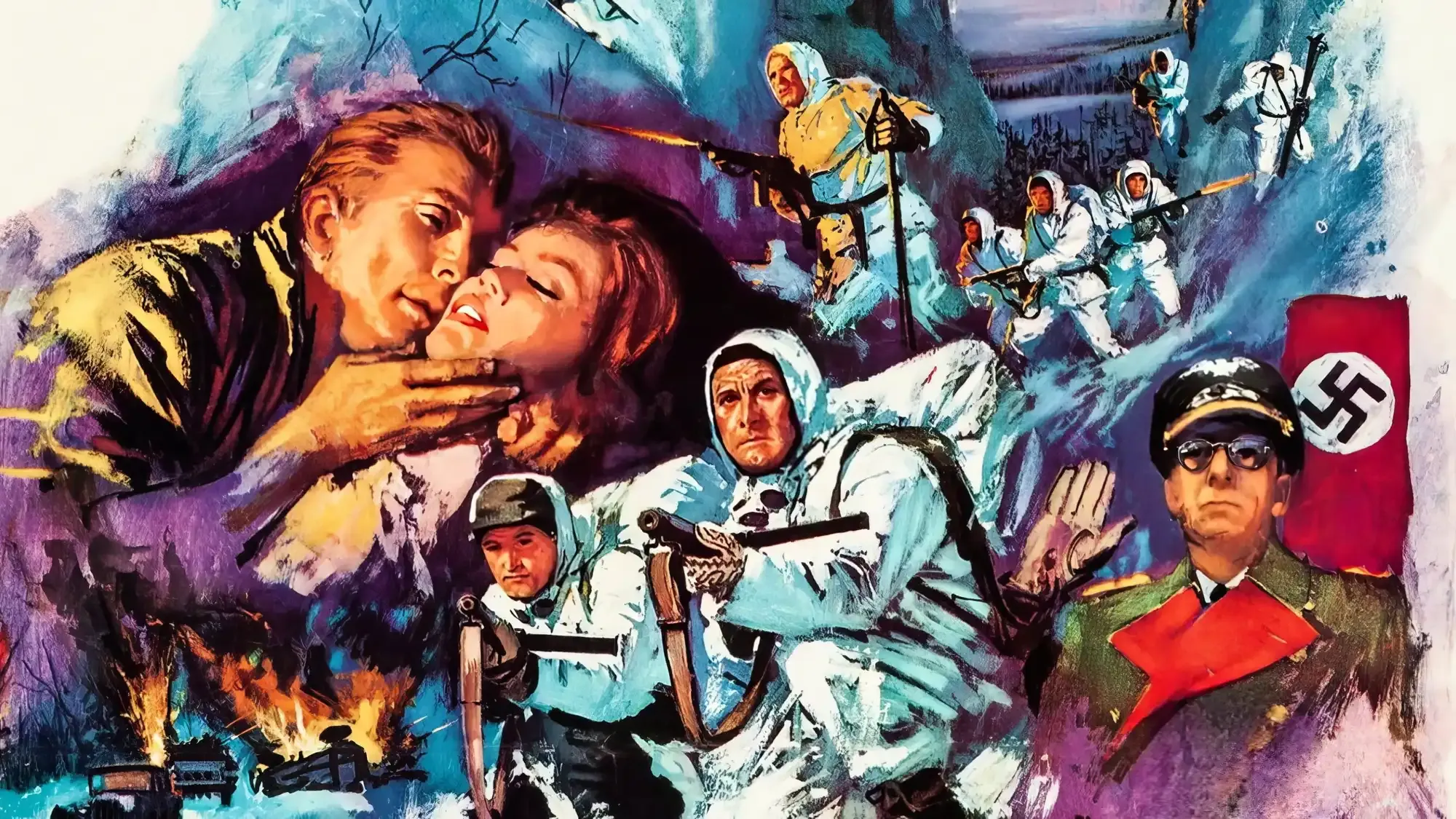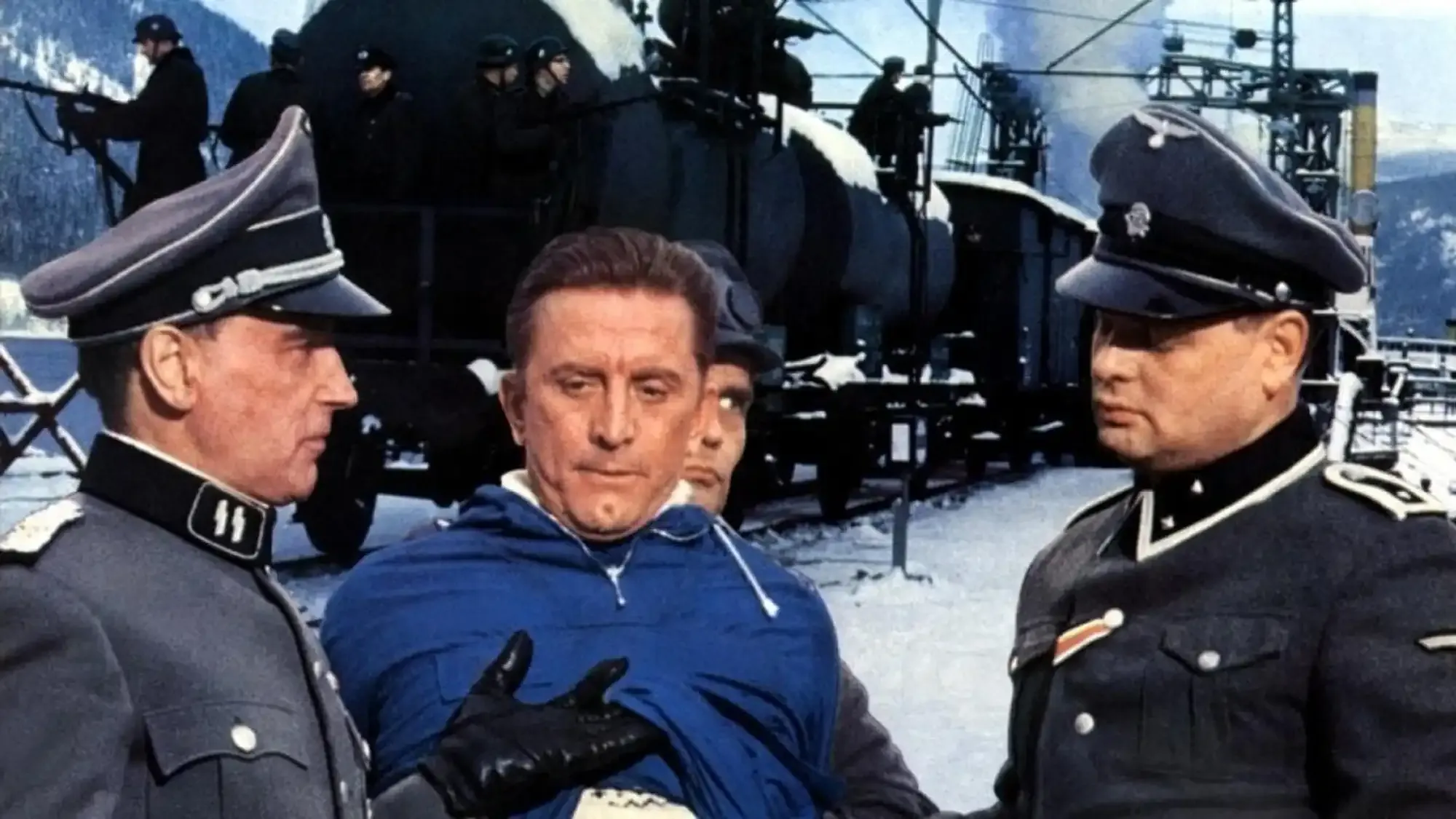"Wartime Resistance in the Norwegian Snows: `The Heroes of Telemark` Review"
Posted Wednesday, Nov 29, 2023 117
The 1965 war drama `The Heroes of Telemark`, directed by Anthony Mann, dramatizes a pivotal act of sabotage during World War II. Based on true events, this gripping tale follows Norwegian resistance fighters Knut Straud (Richard Harris) and Rolf Pedersen (Kirk Douglas) as they undertake a daring mission to destroy a heavy water production plant in Nazi-occupied Norway—a key component to Germany`s atomic bomb ambitions. Amidst frigid conditions, moral quandaries, and relentless pursuit, the resistance fighters confront the monumental task of thwarting a significant threat.
The film weaves themes of duty, sacrifice, and the resilience of the human spirit against tyranny. Its tone is both clinical in depicting the strategical aspects of wartime sabotage and personal in exploring the motivations and dilemmas faced by the characters.
Kirk Douglas portrays the physics professor turned reluctant hero Pedersen with a believable blend of steadfastness and internal conflict, while Richard Harris`s Straud embodies the determined resolve of the Norwegian resistance. Their on-screen dynamic delivers contrasting perspectives on the paths of courage and resistance.
Director Anthony Mann navigates the gravity of the historical scenario with attention to suspense and the human dimension of warfare. His rendition of action set across formidable snowy landscapes adds to the narrative`s stakes and visual impact.

The score, composed by Malcolm Arnold, injects a suspenseful and military flair to the unfolding drama, musically articulating the urgency and perils of the clandestine operation.
Cinematographer Robert Krasker captures the stark Norwegian winter and rugged landscapes, presenting a formidable backdrop that heightens the sense of isolation and the tremendous odds faced by the resistance fighters.
The production design convincingly re-creates wartime Norway, from the interiors of Nazi-occupied facilities to the remote villages that provide cover for resistance activities, offering a visually faithful rendering of the historic setting.
The practical effects used in the film`s action sequences, particularly the sabotage operations, lend credibility to the danger and drama, although by modern standards, these effects appear more restrained.

The editing juxtaposes the intensity of the mission with moments of character reflection, maintaining a momentum that emphasizes the balance between historical retelling and individual valor.
The film`s pace balances periods of tension and strategic execution with character-driven interludes, mirroring the deliberate planning and sudden action that characterized resistance efforts of the era.
The dialogue delivers wartime exigency and a touch of period authenticity, though some characters` lines edge towards period dramatization, occasionally eschewing nuanced conversation for declarative exposition.
Critics may comment on the film`s sometimes Hollywoodized view of wartime resistance, potentially downplaying the grim reality of the historical events for cinematic heroism. Others might find the pace deliberate to a point of sacrificing the suspense and thriller potential inherent in the story.
As a critic, `The Heroes of Telemark` stands as a solid war film that offers a window into a lesser-known chapter of World War II intrigue. The film presents a serviceable blend of epic wartime cinema with a respectful nod to the extraordinary courage of the Norwegian resistance, and while it may not push the boundaries of the genre, it achieves a commendable reflection on a crucial operation that altered the course of history.